
Posillipo: Naples' Coastal Gem
Posillipo, nestled on the western coast of Naples, offers a tranquil escape from the bustling city center. This picturesque neighborhood is renowned for its stunning coastal views, historic sites, and serene atmosphere. As you stroll through the winding streets, you'll be captivated by the blend of natural beauty and rich history that defines Posillipo. One of the highlights of Posillipo is the panoramic view of the Bay of Naples, with Mount Vesuvius majestically rising in the background. The scenic vantage points, such as Parco Virgiliano, provide perfect spots for photography and relaxation. The park itself is an oasis of greenery, ideal for a leisurely walk or a picnic with a view. History enthusiasts will find plenty to explore in Posillipo. The ancient ruins of the Pausilypon Archaeological Park offer a glimpse into the opulent villas and theaters of the Roman era. The nearby Grotta di Seiano, a tunnel carved through the rock, provides an adventurous route to the park with its mysterious and historical charm. For those looking to indulge in local cuisine, Posillipo boasts a variety of restaurants and cafes that serve fresh seafood and traditional Neapolitan dishes. Dining with a view of the sunset over the bay is an experience that should not be missed. Whether you're seeking natural beauty, historical intrigue, or culinary delights, Posillipo has something for every traveler. Its serene ambiance provides a perfect contrast to the vibrant heart of Naples, making it a must-visit destination on your Italian journey.
Local tips in Posillipo
- Visit Parco Virgiliano during sunset for the best panoramic views.
- Wear comfortable shoes for exploring the ancient ruins and tunnels.
- Try the local seafood at a seaside restaurant for an authentic dining experience.
- Bring a camera to capture the stunning vistas of the Bay of Naples.
- Consider visiting during the off-peak season for a more peaceful experience.
Posillipo: Naples' Coastal Gem
Posillipo, nestled on the western coast of Naples, offers a tranquil escape from the bustling city center. This picturesque neighborhood is renowned for its stunning coastal views, historic sites, and serene atmosphere. As you stroll through the winding streets, you'll be captivated by the blend of natural beauty and rich history that defines Posillipo. One of the highlights of Posillipo is the panoramic view of the Bay of Naples, with Mount Vesuvius majestically rising in the background. The scenic vantage points, such as Parco Virgiliano, provide perfect spots for photography and relaxation. The park itself is an oasis of greenery, ideal for a leisurely walk or a picnic with a view. History enthusiasts will find plenty to explore in Posillipo. The ancient ruins of the Pausilypon Archaeological Park offer a glimpse into the opulent villas and theaters of the Roman era. The nearby Grotta di Seiano, a tunnel carved through the rock, provides an adventurous route to the park with its mysterious and historical charm. For those looking to indulge in local cuisine, Posillipo boasts a variety of restaurants and cafes that serve fresh seafood and traditional Neapolitan dishes. Dining with a view of the sunset over the bay is an experience that should not be missed. Whether you're seeking natural beauty, historical intrigue, or culinary delights, Posillipo has something for every traveler. Its serene ambiance provides a perfect contrast to the vibrant heart of Naples, making it a must-visit destination on your Italian journey.
Iconic landmarks you can’t miss
Parco Virgiliano
Experience breathtaking views and tranquil beauty at Parco Virgiliano, a serene park in Naples perfect for relaxation and exploration.
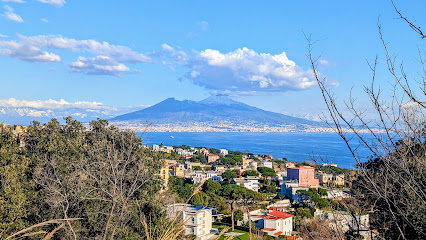
Belvedere di Sant'Antonio a Posillipo
Discover the panoramic beauty of Naples at Belvedere di Sant'Antonio a Posillipo, a must-visit observation deck with stunning views of the Bay and Mount Vesuvius.
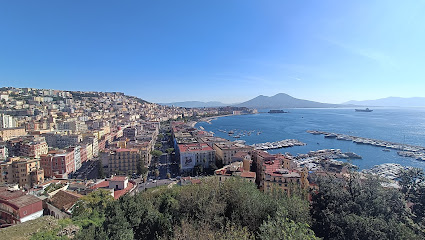
Parco Archeologico del Pausilypon
Explore the stunning Parco Archeologico del Pausilypon in Naples, where ancient Roman history meets breathtaking coastal views.
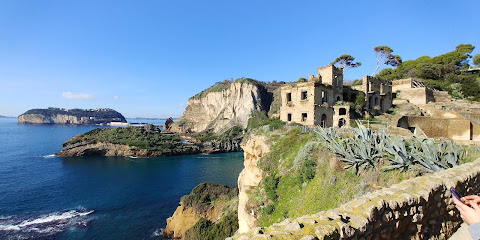
Cave of Sejanus
Discover the historical allure and stunning coastal views at the Cave of Sejanus, a must-visit landmark in Naples, Italy.
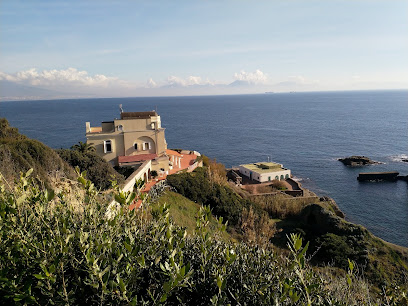
Panorama
Experience Naples like never before at Panorama Observation Deck—an iconic viewpoint offering stunning vistas of the city and beyond.
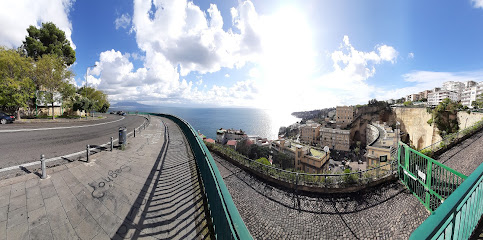
Belvedere occidentale di Posillipo
Discover the stunning vistas of Belvedere Occidentale di Posillipo, a scenic spot in Naples offering breathtaking views of the Bay of Naples and Mount Vesuvius.
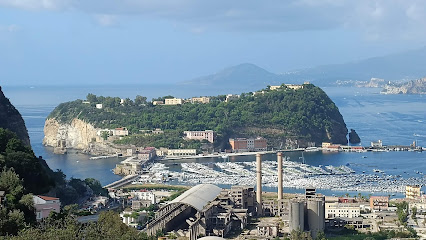
Panoramica Posillipo
Experience the stunning vistas of Naples at Panoramica Posillipo, where the beauty of the Gulf meets the charm of Italy.
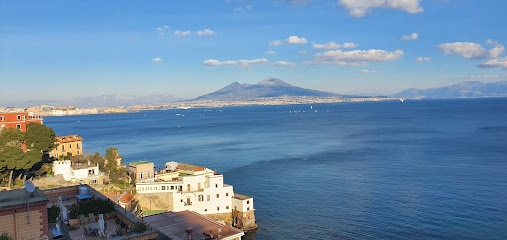
Mausoleo Schilizzi
Explore the serene Mausoleo Schilizzi in Naples, a stunning landmark rich in history and breathtaking architecture, perfect for art lovers and history enthusiasts alike.
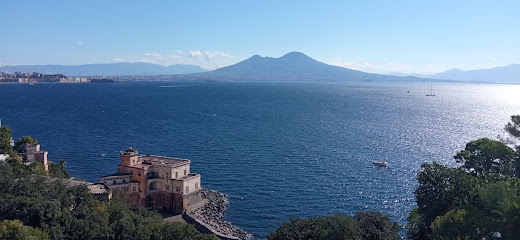
Palazzo degli Spiriti
Explore the Palazzo degli Spiriti in Naples, a historical landmark blending rich heritage with stunning coastal views, perfect for history enthusiasts and tourists.
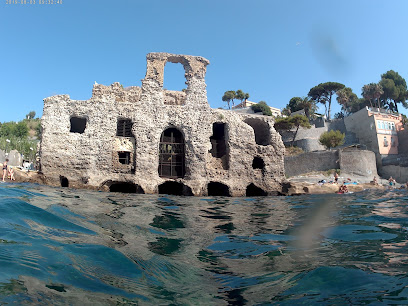
pino di Posillipo
Discover the breathtaking views and serene beauty of Pino di Posillipo, a perfect scenic escape in Naples, Italy.
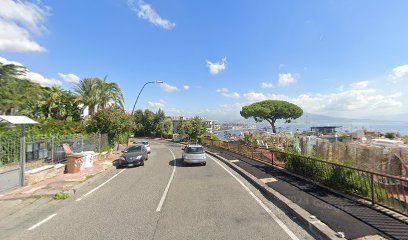
Unmissable attractions to see
Piazza del Plebiscito
Experience the grandeur of Naples at Piazza del Plebiscito, a historic square surrounded by architectural gems and vibrant city life.
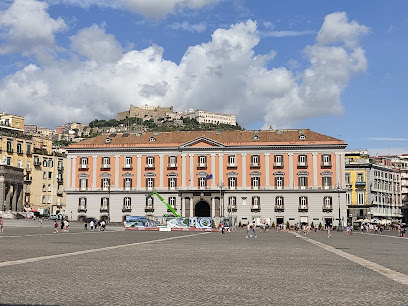
Parco Virgiliano
Escape to Parco Virgiliano in Naples: breathtaking views, tranquil gardens, and a vibrant atmosphere await on Posillipo hill.
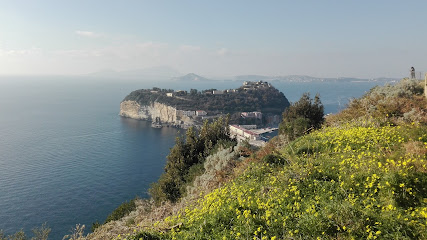
Napoli Sotterranea Guided Authorized Tour
Uncover Naples' hidden history beneath the city streets: Explore ancient aqueducts, Roman ruins, and WWII shelters at Napoli Sotterranea.
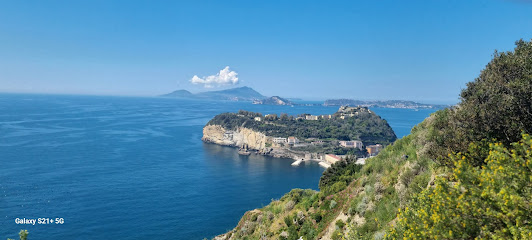
Area Marina Protetta Parco Sommerso di Gaiola
Explore a unique blend of history, nature, and submerged Roman ruins in the stunning underwater park of Gaiola, Naples.
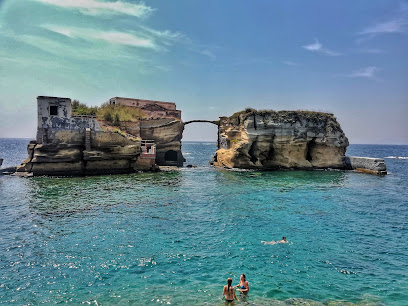
Parco Archeologico del Pausilypon
Explore the ruins of a lavish Roman villa with stunning Gulf views at Naples' Pausilypon Archaeological Park. A journey through history and natural beauty.
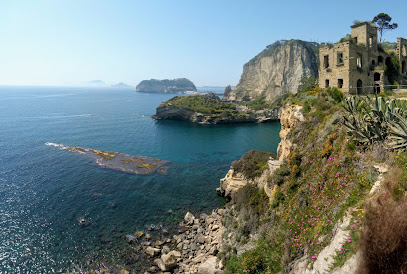
Cave of Sejanus
Explore an ancient Roman tunnel offering a unique blend of history and stunning coastal views in Naples, Italy.
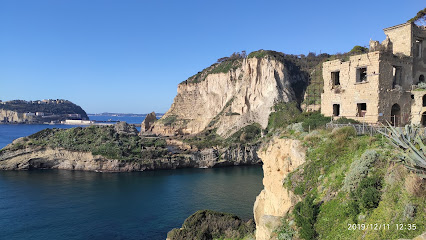
Teatro Greco-Romano
Explore Naples' Teatro Greco-Romano, where ancient Roman entertainment comes to life in the heart of the historic city.
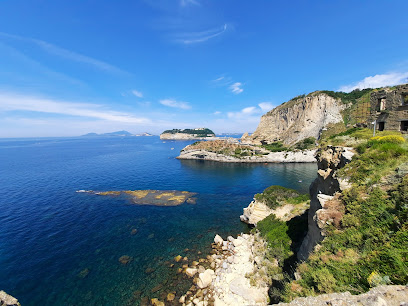
Palazzo degli Spiriti
Explore the haunting beauty of Palazzo degli Spiriti in Naples, where Roman history meets captivating legends along the stunning Marechiaro coastline.
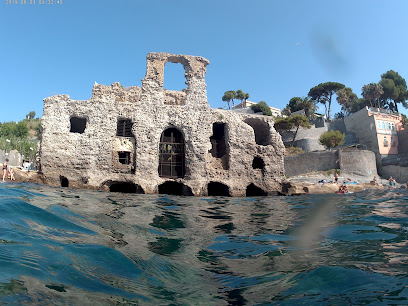
Spiaggia Mergellina
Experience the charm of Spiaggia Mergellina in Naples: a blend of coastal beauty, local flavors, and easy access to Neapolitan life.
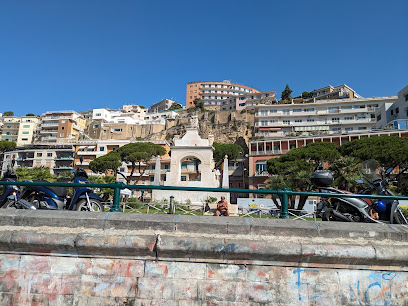
Panorama da Posillipo
Experience breathtaking views of the Gulf of Naples, Capri, and Vesuvius from this scenic and historic vantage point on Via Orazio.
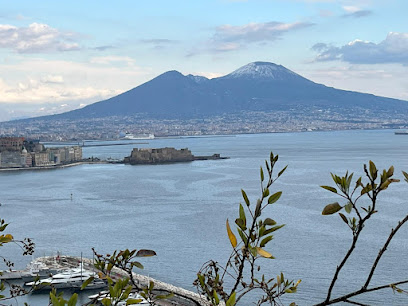
Essential places to dine
Ristorante Reginella
Experience authentic Mediterranean flavors at Ristorante Reginella in Naples, where fresh seafood meets traditional Italian pizza in a stunning seaside setting.
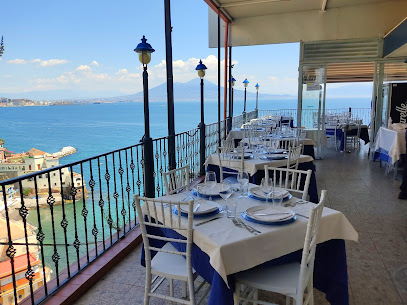
Tufò - Trattoria Gourmet
Experience authentic Italian cuisine at Tufò - Trattoria Gourmet in Naples with stunning views and a warm atmosphere.
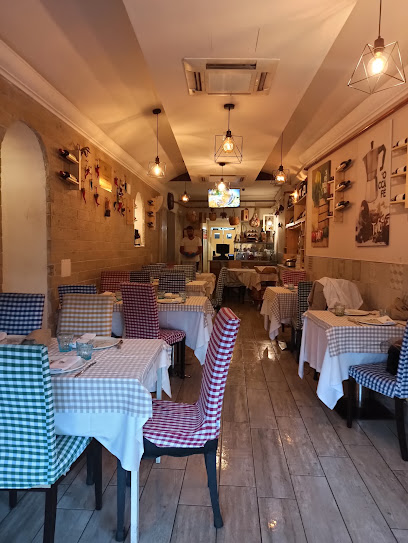
'A Fenestella
Experience authentic Neapolitan cuisine at 'A Fenestella', where seafood delights meet stunning coastal views in Naples.
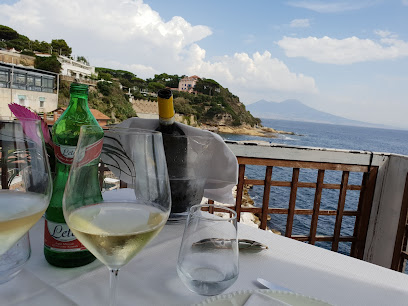
Ristorante Calasole
Experience authentic Italian cuisine at Ristorante Calasole in Naples, where fresh seafood meets breathtaking coastal views.
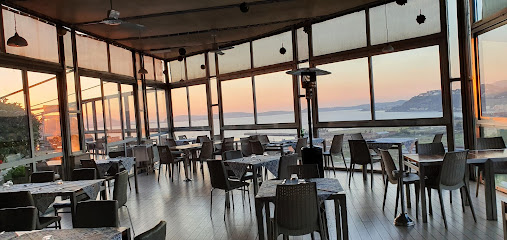
Palazzo Petrucci Ristorante
Experience gourmet Italian cuisine at Palazzo Petrucci Ristorante with stunning views over the Bay of Naples in an elegant fine dining setting.
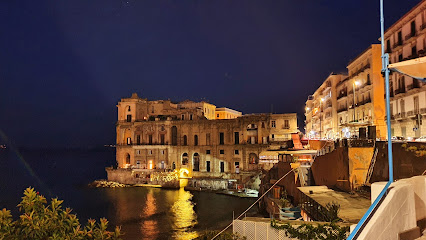
Giuseppone a Mare
Experience authentic Italian seafood cuisine at Giuseppone a Mare in Naples, where fresh ingredients meet stunning coastal views.
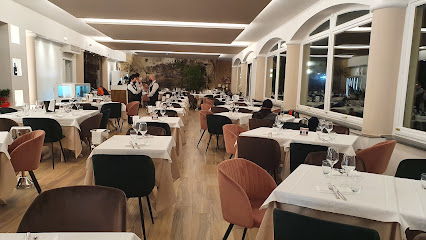
Le Stanze
Discover Le Stanze in Posillipo: A culinary haven serving authentic Neapolitan cuisine amidst stunning views.
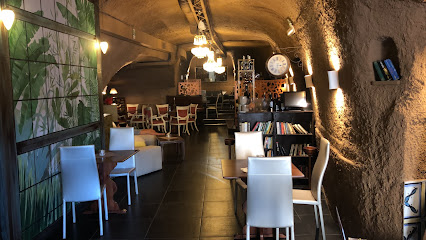
UnPizzicoDi
Experience authentic Neapolitan cuisine at UnPizzicoDi – where every dish tells a story of Italy's rich culinary heritage.
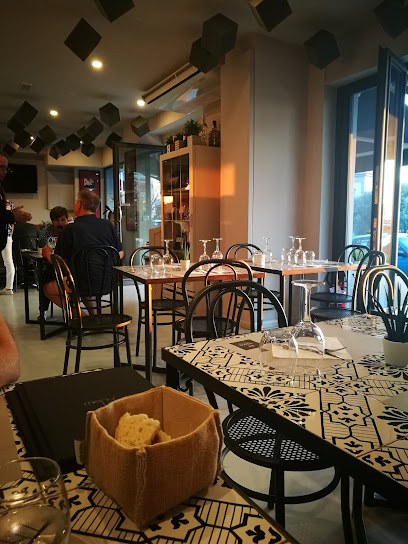
Casa a tre pizzi
Experience authentic Neapolitan flavors at Casa a Tre Pizzi, where stunning bay views meet exquisite dining in Naples.

Alicella Ristorante Cruderia
Experience culinary excellence with breathtaking views at Alicella Ristorante Cruderia in Naples – where fresh seafood meets Italian tradition.
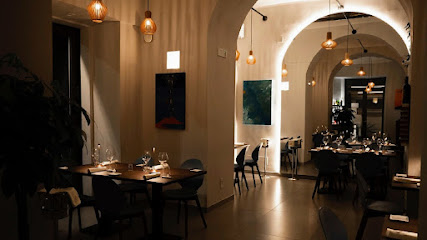
Markets, malls and hidden boutiques
Giuliana Via Posillipo
Discover the elegance of Italian fashion at Giuliana Via Posillipo, a must-visit women's clothing store in Naples, combining style with stunning views.
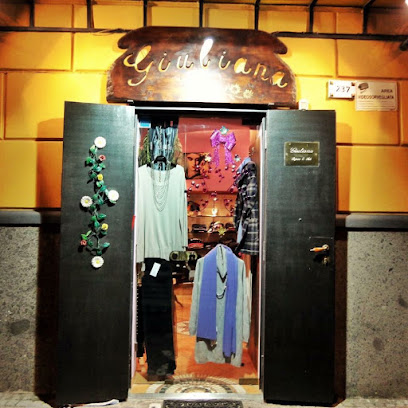
Betty Boup
Explore Betty Boup in Naples, where stylish clothing meets Italian charm—perfect for discerning travelers and fashion lovers alike.
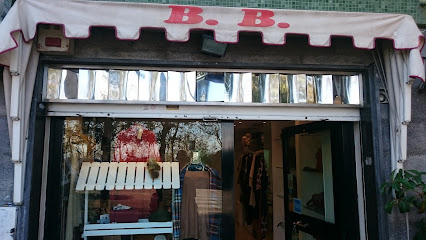
Magic island R&S Posillipo
Explore the vibrant cannabis culture at Magic Island R&S Posillipo, Naples' premier cannabis store offering a unique selection and expert guidance.

Negozio a Posillipo
Discover unique souvenirs and local craftsmanship at Negozio a Posillipo, a must-visit shopping destination in Naples, Italy.
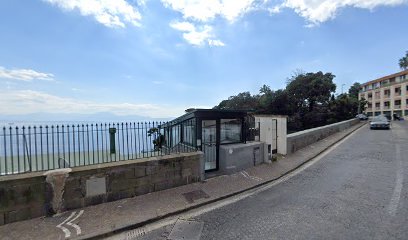
Blessed
Discover the essence of Naples at Blessed Store, where unique local crafts and artisanal treasures await every visitor.
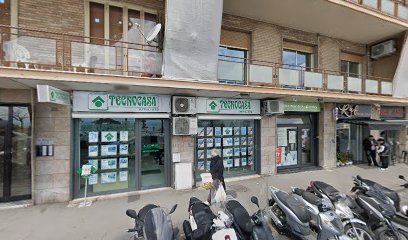
Luxury Commerce SRL
Discover the epitome of Italian fashion at Luxury Commerce SRL in Naples, where elegance meets modern style in a vibrant shopping experience.

Mundo Anna Maria
Discover authentic Neapolitan crafts and culinary delights at Mundo Anna Maria, a unique store in the picturesque Posillipo area of Naples.
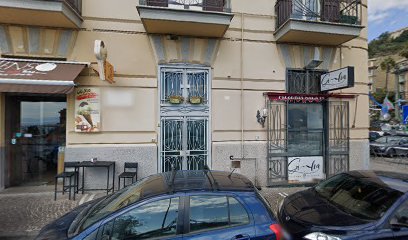
The Blueberry
Explore the latest women's fashion trends at The Blueberry, a chic clothing store in the heart of Naples, Italy, perfect for style-conscious travelers.
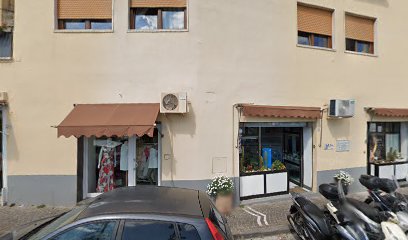
SPAZIO F Showroom
Discover a world of exquisite design at SPAZIO F Showroom, where Naples' artistic heritage meets contemporary elegance.
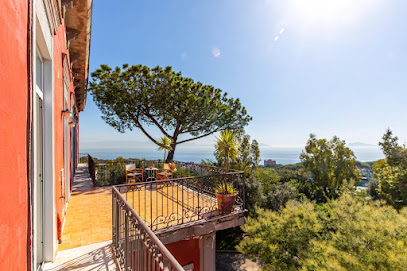
Kenomoa shop
Discover wellness at Kenomoa Shop in Naples, where natural beauty products meet Italian tradition for a rejuvenating experience.
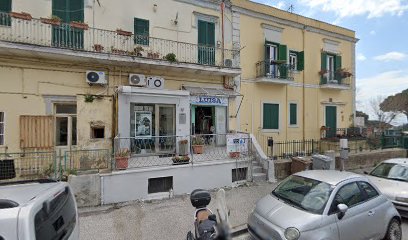
Essential bars & hidden hideouts
Miranapoli
Experience the vibrant flavors of Naples at Miranapoli, a bar and cafe offering exquisite small plates and a delightful tea selection.
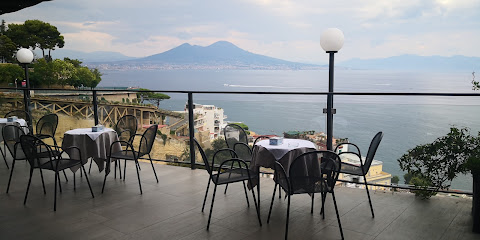
Lucrezio Cafè
Discover the heart of Naples with exquisite coffee and stunning views at Lucrezio Cafè, your perfect retreat in this vibrant city.
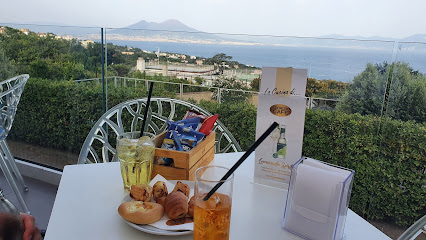
Bar del Mare Posillipo
Discover the flavors of Naples at Bar del Mare Posillipo, where seafood and pizza meet stunning Mediterranean views.
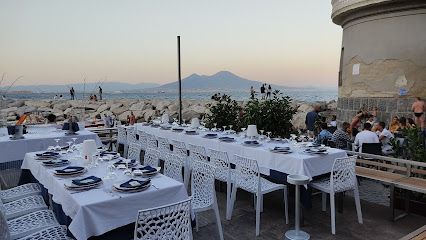
Caffetteria Serpentone
Discover Naples’ vibrant coffee culture at Caffetteria Serpentone, where every sip tells a story of Italian tradition and flavor.
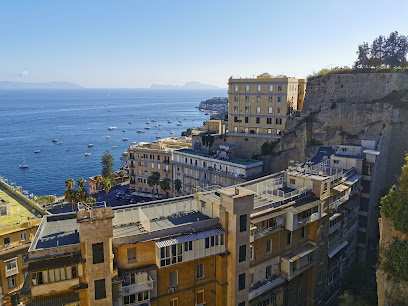
Bar Posillipo
Experience the charm of Bar Posillipo, a scenic bar in Naples offering stunning views and authentic local flavors.
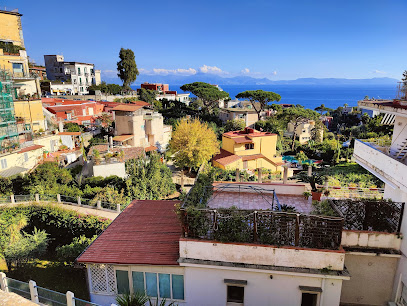
Ke' Bar Manzilli
Experience the heart of Naples at Ke' Bar Manzilli, where local flavors meet a vibrant atmosphere in a cozy café setting.
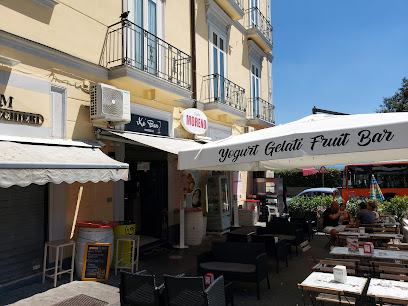
Bar Olimpico
Experience the lively ambiance of Bar Olimpico in Naples, where local culture meets a delightful selection of drinks and snacks.
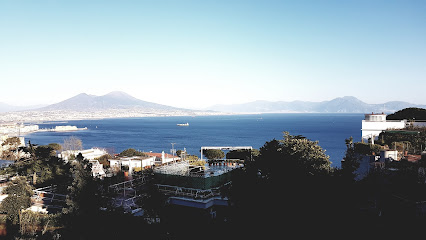
Il Malandrino - Lounge Bar
Discover Il Malandrino in Naples, a cocktail bar that blends elegance with breathtaking views and exquisite drinks for an unforgettable experience.
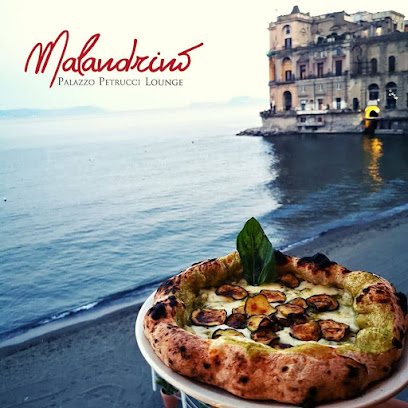
Gianni Pub
Discover the lively ambiance and great drinks at Gianni Pub, a must-visit spot for tourists in Naples.
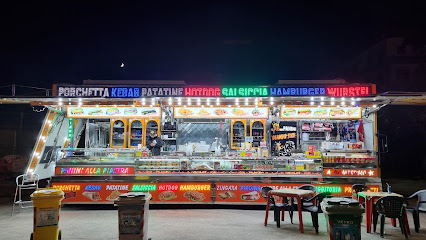
Downstairs Posillipo Lounge
Discover the chic ambiance of Downstairs Posillipo Lounge in Naples, where exquisite drinks meet a sophisticated atmosphere for the perfect night out.
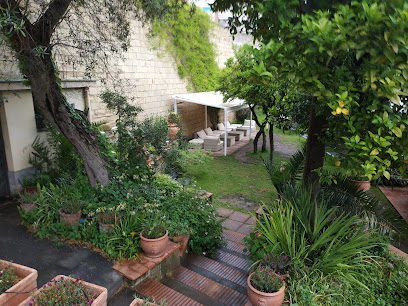
Local Phrases
-
- HelloCiao
[chow] - GoodbyeArrivederci
[ar-ri-ve-der-chi] - YesSì
[see] - NoNo
[no] - Please/You're welcomePer favore/Prego
[per fa-vo-re/pre-go] - Thank youGrazie
[gra-tsyeh] - Excuse me/SorryMi scusi/Scusa
[mee skoo-zee/skoo-za] - How are you?Come stai?
[ko-meh sty] - Fine. And you?Bene. E tu?
[be-ne/e too] - Do you speak English?Parli inglese?
[par-lee een-gleh-zeh] - I don't understandNon capisco
[non ka-pee-skoh]
- HelloCiao
-
- I'd like to see the menu, pleaseVorrei vedere il menu, per favore
[vor-ray ve-de-re eel me-nu, per fa-vo-re] - I don't eat meatNon mangio carne
[non man-joh kar-ne] - Cheers!Salute!
[sa-lu-te] - I would like to pay, pleaseVorrei pagare, per favore
[vor-ray pa-ga-re, per fa-vo-re]
- I'd like to see the menu, pleaseVorrei vedere il menu, per favore
-
- Help!Aiuto!
[ai-u-to] - Go away!Vattene!
[vat-te-ne] - Call the Police!Chiama la Polizia!
[kyah-ma la po-lee-tsyah] - Call a doctor!Chiama un dottore!
[kyah-ma oon dot-to-re] - I'm lostMi sono perso
[mee so-no per-so] - I'm illSto male
[sto ma-le]
- Help!Aiuto!
-
- I'd like to buy...Vorrei comprare...
[vor-ray com-pra-re] - I'm just lookingSto solo guardando
[sto so-lo gwar-dan-do] - How much is it?Quanto costa?
[kwan-to kos-ta] - That's too expensiveÈ troppo caro
[eh tro-ppo ka-ro] - Can you lower the price?Puoi abbassare il prezzo?
[pwah-ee ab-ba-sa-re eel pret-zoh]
- I'd like to buy...Vorrei comprare...
-
- What time is it?Che ora è?
[ke o-ra eh] - It's one o'clockÈ l'una
[eh loo-na] - Half past (10)Sono le dieci e mezza
[so-no le dyeh-chee eh me-tsa] - MorningMattina
[mat-tee-na] - AfternoonPomeriggio
[po-me-ree-joh] - EveningSera
[se-ra] - YesterdayIeri
[yeh-ree] - TodayOggi
[oh-jee] - TomorrowDomani
[do-ma-nee] - 1Uno
[oo-no] - 2Due
[doo-eh] - 3Tre
[treh] - 4Quattro
[kwat-tro] - 5Cinque
[cheen-kweh] - 6Sei
[say] - 7Sette
[set-te] - 8Otto
[ot-to] - 9Nove
[no-veh] - 10Dieci
[dyeh-chee]
- What time is it?Che ora è?
-
- Where's a/the...?Dov'è un/il...?
[do-veh oon/eel] - What's the address?Qual è l'indirizzo?
[kwal eh leen-dee-ree-tso] - Can you show me (on the map)?Puoi mostrarmi (sulla mappa)?
[pwah-ee mo-star-mee (soo-la map-pa)] - When's the next (bus)?Quando passa il prossimo (autobus)?
[kwan-do pas-sa eel pros-si-mo (ow-to-bus)] - A ticket (to ....)Un biglietto (per ....)
[oon bee-lyet-to (per)]
- Where's a/the...?Dov'è un/il...?
History of Posillipo
-
Posillipo's history can be traced back to ancient times, notably during the Greek colonization of Southern Italy around the 8th century BC. The area was known as 'Pausilypon' which translates to 'a place of rest'. It served as a retreat for wealthy Romans who built luxurious villas overlooking the Bay of Naples, taking advantage of the stunning views and mild climate.
-
During the Roman Empire, Posillipo flourished as an elite residential area. It was home to notable figures, including the poet Virgil, whose estate is believed to have been located here. The remnants of ancient Roman structures, such as the Villa of Pausilypon, showcase the region's architectural grandeur and its importance in Roman society.
-
The fall of the Western Roman Empire in the 5th century led to a decline in Posillipo's prominence. The area transitioned into a quieter, rural landscape, marked by the rise of monasteries and small churches. The medieval period saw a shift in focus from opulent villas to simpler ecclesiastical architecture.
-
The Renaissance marked a revival for Posillipo as artists and intellectuals returned to the area, attracted by its natural beauty. The construction of palaces and gardens, such as the celebrated Palazzo Donn'Anna, reflected the era's artistic spirit. The coastline and scenic vistas became a canvas for the creative minds of the time.
-
The 20th century brought significant changes to Posillipo, as urbanization transformed the neighborhood into a bustling residential area. The establishment of new infrastructure, including roads and public transportation, facilitated access to the area, making it a desirable location for affluent families. Cultural institutions, such as the Villa Comunale, were developed, enriching the local cultural landscape.
-
Today, Posillipo is known for its cultural heritage and picturesque views. The neighborhood is home to several important historical sites, including the Parco Virgiliano, which celebrates the legacy of Virgil. Posillipo continues to attract tourists seeking both relaxation and a connection to Naples' rich history, further solidifying its status as a cultural gem within the city.
Posillipo Essentials
-
Posillipo is easily accessible from central Naples. You can take the Metro Line 2 to the Mergellina station, then transfer to bus line 140 or 151, which will take you directly into Posillipo. Alternatively, taxis and ride-sharing services are widely available and provide a convenient way to reach the neighbourhood. For those coming from Capodichino Airport, shuttle buses or taxis can take you to your destination in around 30 minutes, depending on traffic.
-
Posillipo is best explored on foot, as many of its attractions are within walking distance. Public buses (lines 140, 151, and 152) run frequently, connecting Posillipo to the rest of Naples. Bicycles are also a great way to navigate the area, with several bike rental shops available. For stunning views, consider walking along the Via Posillipo promenade. Taxis are available for longer distances or if you prefer not to walk.
-
Posillipo is generally considered a safe neighbourhood for tourists. However, it is advisable to remain vigilant, especially in less crowded areas. Avoid walking alone at night on secluded streets and keep an eye on your belongings to prevent petty theft. While the main tourist areas are safe, the nearby Quartieri Spagnoli and parts of Sanità should be approached with caution due to higher crime rates targeting tourists.
-
In case of emergency, dial 112 for police, fire, or medical assistance. The local hospitals and clinics can provide immediate care. It is advisable to carry travel insurance to cover any medical emergencies. Pharmacies are also available throughout Posillipo for over-the-counter medications. For non-life-threatening issues, local medical facilities can assist.
-
Fashion: Do dress modestly, especially when visiting religious sites such as the Church of Santa Maria del Parto. Do not wear beachwear outside of the beach areas. Religion: Do respect local customs and traditions, including covering your head when entering churches. Public Transport: Do give up your seat to the elderly. Don't eat or drink on public transport. Greetings: Do greet people with a friendly smile or a handshake. Eating & Drinking: Do try local seafood dishes and enjoy a Neapolitan coffee. Don't rush through meals; dining is a social experience.
-
To experience Posillipo like a local, take a stroll along the Lungomare promenade and enjoy the breathtaking views of the Bay of Naples. Visit the local markets for fresh produce and regional delicacies. Engage with the locals, as they are often friendly and willing to share stories. Don't miss the chance to visit the Parco Virgiliano, which offers panoramic views and is a favorite spot for locals. Lastly, try to visit during the sunset for a truly magical experience.
Nearby Cities to Posillipo
-
Things To Do in Herculaneum
-
Things To Do in Sorrento
-
Things To Do in Pompeii
-
Things To Do in Capri
-
Things To Do in Positano
-
Things To Do in Ravello
-
Things To Do in Amalfi
-
Things To Do in Rome
-
Things To Do in St. Peter's Square
-
Things To Do in Apostolic Palace
-
Things To Do in Vatican Necropolis
-
Things To Do in St. Peter's Basilica
-
Things To Do in Sistine Chapel
-
Things To Do in Gregorian Etruscan Museum
-
Things To Do in Vatican Museums













